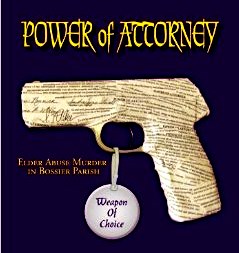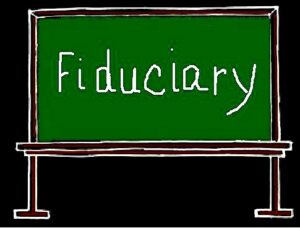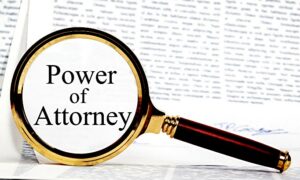
This is both pursuant to the law of breach of fiduciary duty, as well as section 27 of the Property Law act RSBC
50 It is well established that the attorney acting under a power of attorney is bound to the duties enunciated on the face of the instrument granting the power. In this case, the power of attorney remains exercisable during periods of capacity and mental infirmity. A condition requires the attorneys to provide the donor with regular accountings at any time they assist him in his financial affairs.
McMullen v McMullen 2006 BCSC 1656 is an example of a court decision where section 27 of the Property Law act, together with breach of fiduciary duty, was used to set aside a transfer made by an attorney without ratification by the principal.
The court stated the following law with respect to this issue:
51 It is also well established that the relationship between the attorney and the donor is a fiduciary one. This stems from the agent-principal relationship, as well as the indicators of a fiduciary relationship as described in Frame v. Smith, [1987] 2 S.C.R. 99 (S.C.C.), which include the unilateral exercise by the fiduciary of some discretion or power, which affects the beneficiary’s legal or personal interest, and where the beneficiary is particularly vulnerable. See Egli (Committee of) v. Egli (2004), 28 B.C.L.R. (4th) 375, 2004 BCSC 529 (B.C. S.C.), aff’d (2005), 48 B.C.L.R. (4th) 90, 2005 BCCA 627 (B.C. C.A.).
52 In Andreasen v. Daniels-Ferrie, 2001 BCSC 1503 (B.C. S.C.), Quijano J. described the requisite standard of care that was to be expected when utilizing a power of attorney at para. 27:
[I]t is well established that the attorney acting under a power of attorney does so in a fiduciary relationship with the donor and that, in addition to whatever duties may be enunciated on the face of the instrument, even where the attorney acts gratuitously he or she has a duty to account, to exercise reasonable care as would a typically prudent person managing his or her own affairs, and not act contrary to the interests of the donor.
53 In most cases involving allegations of a breach of duty regarding the use of a power of attorney, the issues stem from transactions where property was transferred from the donor to the attorney. Under s. 27 of the Property Law Act, any such transaction is not valid unless the power of attorney expressly authorizes it or the principal ratifies it. An unauthorized transaction will constitute a breach of fiduciary duty despite good intentions by the attorney: Egli (Committee of) v. Egli, supra.
54 This case does not involve a transfer to the attorneys, but rather a transfer to the spouses of the attorneys. Mr. Roberts did not explicitly argue that such a transaction is equivalent to a transfer to the attorneys, but he did raise the applicability of s. 27 of the Property Law Act. He also submitted that the powers given in the power of attorney do not authorize the granting away of the principal’s property without consideration: Begley v. Imperial Bank of Canada (1934), [1935] S.C.R. 89 (S.C.C.), aff’d [1936] 2 All E.R. 367 (Canada P.C.).
S 27 and 28 of the Property Law Act state as follows:
Attorney cannot sell to himself or herself
27 A sale, transfer or charge to or in favour of himself or herself by an attorney named in a power of attorney, of land owned by the principal and purporting to be made under the power of attorney, is not valid unless the power of attorney expressly authorizes it or the principal ratifies it.
Validity of sale, transfer or charge by attorney to self
27.1 (1) In this section:
“agreement” means an enduring power of attorney made under Part 2 of the Power of Attorney Act;
“attorney” means a person named in an enduring power of attorney as an attorney.
(2) A sale, transfer or charge to or in favour of an attorney by the attorney of land owned by the adult who made an agreement, and purporting to be made under the agreement, is not valid unless the sale, transfer or charge is expressly authorized by that agreement.




